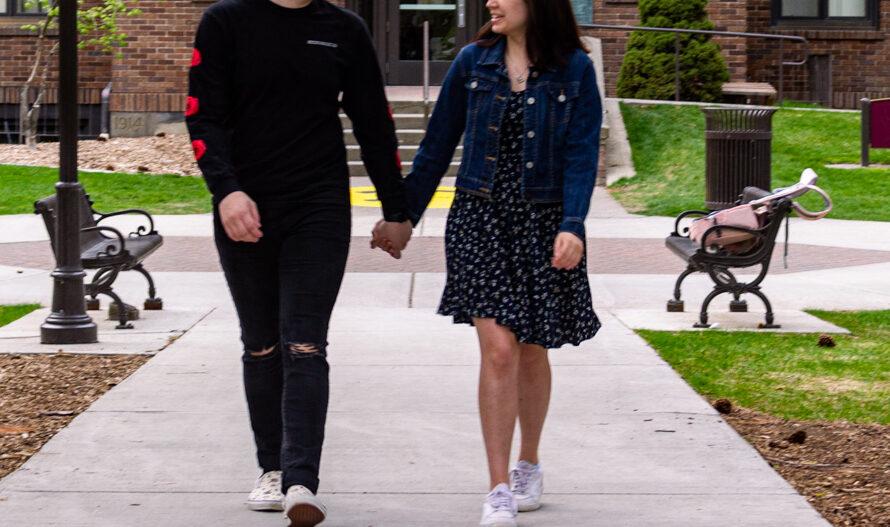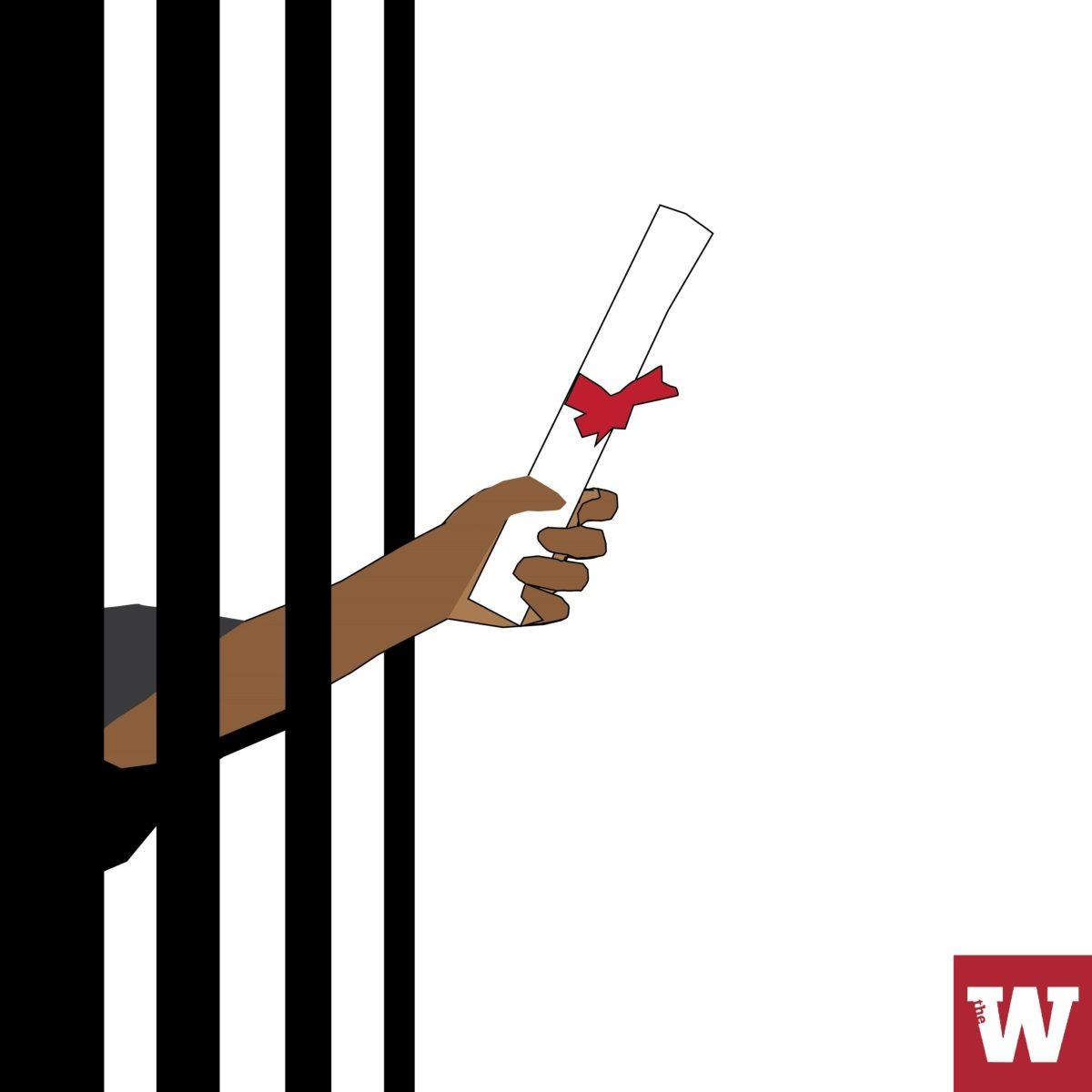By: Nicole Harris, opinions editor

“I mean, honestly, I just love the mess of it all,” says English professor Courtney Barajas, Ph.D.
Barajas has been regularly watching “The Bachelor” for about five years and says that she casually watched for maybe two years prior to that. For Barajas, a self-proclaimed “true believer,” in order for the show to work, “in order for you to fall in love with someone on TV, you have to believe that it’s possible to fall in love with someone on TV,” which is why the bachelor is always a past contestant.
For many, the draw of “The Bachelor” is the string of contestants who earn their own “journey” by winning over the hearts of Bachelor Nation with their honesty, vulnerability and character.
This year’s bachelor is no different. Clayton Echard was given very little screen time as a contestant, which made fans skeptical of his ability to succeed as the showrunner. In the end, it sure seems like he only succeeded in perpetuating the show’s never-ending growth narrative, leaving the show with his frontrunner Susie Evans after some time apart for self-reflection.
The reality TV series “The Bachelor” has been insanely popular for the last 20 years, resulting in multiple spin-offs over the years like “The Bachelorette,” “Bachelor in Paradise,” “Bachelor Pad,” “The Bachelor: Winter Games” and “The Bachelor Presents: Listen to Your Heart.”
The show has even warranted popular parodies like The Bachelor Musical, an unofficial musical parody of the show including songs like “Trauma Olympics” and “The Virgin’s Song.”
Accounts like Bachelor Data on Instagram have created entire platforms dedicated to consolidating information about “The Bachelor,” including the frequency of buzzwords and the popularity of top cast members. Bachelor Data even tracks the number of Instagram followers a contestant gains week by week.
Barajas says, “If the difference between making it to week three and making it to week 10 is 500,000 followers, and 500,000 followers is the difference between a brand partnership and not having a brand partnership, then it makes sense to stay those 10 weeks.”
According to English professor Kari Nixon, Ph.D., “Any popular media reflects us and tells us a lot about our society… [it] could tell us a lot about our society and our values today, or sometimes what we feel like we’re lacking and a void we’re trying to fill.”
If Bachelor buzzwords are any indication, what it seems like we are lacking is an optimized self. “The Bachelor” promotes growth through acts of vulnerability. It seems to tell us, “If you do this thing, you will become your best self and be able to be the best partner to your husband or wife.”
There are many built-in moments of reflection meant to get contestants here: the women tell all, the after the final rose, the confessional. As audience members, we crave those moments of reflection. We need clarity. We want to know why people act the way they do.
Better yet, if we can identify why we act the way we do, we might be able to change, grow and become our best selves, as well. After all, if you aren’t working on yourself, what are you doing?
In her essay, “Always Be Optimizing,” Jia Tolentino says, “The ideal woman has been whatever she wants to be as long as she manages to act upon the belief that perfecting herself and streamlining her relationship to the world can be a matter of both work and pleasure—of ‘lifestyle.’”
In other words, the ideal woman must always be focused on perfecting herself. Tolentino relates this to athleisure wear, exercise and beauty, but since the pandemic, this framework has begun to take an internal turn.
Especially in the context of “The Bachelor,” if you aren’t growing through your journey on the show, you have to be the villain. Therefore, in order to grow, you have to put yourself out there, be vulnerable and make a meaningful connection. To do this, contestants often revert to trauma bonding, or bonding over shared past traumas.
According to Barajas, “Trauma bonding is a huge thing on this show. They frame it as vulnerability.”
Beginning in Clare Crawley’s season, the call for vulnerability has only intensified. It happens at every turn, pushing contestants to offer emotional and personal testimony as a means of creating connection.
Nixon calls this push for authenticity a broken record. She says, “Demanding this ready-made authenticity is an oxymoron. You can’t; vulnerability cannot be performed on command…That’s not true vulnerability.“
Barajas says, “On group dates, whoever is the most vulnerable is the one who wins that group date rose. And so, the sort of norm that that is established is that intimacy is created by sharing your trauma…”
This only fosters a competition for tragic stories, regardless of their authenticity. To some extent, it feels like an endless string of pity roses for women with good stories to tell about their past.
Nixon says, “We are so hungry for vulnerability we’ll take any semblance of it, because we’ve got such an emptiness for that in our society.”
In the finale of this season’s Bachelor, we see an unexpected and spontaneous moment of vulnerability because of Clayton’s choice to tell both of his remaining women what the previews have primed us for since the moment was Clayton was announced as the Bachelor: “I was intimate with both of you.”
The two women fight back their emotional responses until they walk away from the rose ceremony space, disrupting the scripted feeling of emotion that is so characteristic of the show.
When they finally do cry, their sobs echo in a way that makes the live audience visually uncomfortable.
What we see is a moment of raw emotion that disrupts the dramatics of the show and eventually the structure of its ending. For the first time in Bachelor history, the bachelor is rejected at the final rose.
I would like to suggest that we crave the familiarity of this performed openness. When faced with real, ugly reactions that break the form of the show, we don’t know how or when to react. This is why the audience remains silent with little expression.
All of this is just a representation of our current moment. We don’t want fake women anymore. We don’t want basic stories—we want authenticity. But to be both authentic and beautiful means to fall down some sort of chain of self-improvement.
We need to get out of this culture of constant self-improvement.
I suggest we get okay with maintenance phases within our lives, that we stop thinking of happiness as some far-off thing that can only be achieved once we perfect ourselves in some way.












 Spokane?
Spokane?